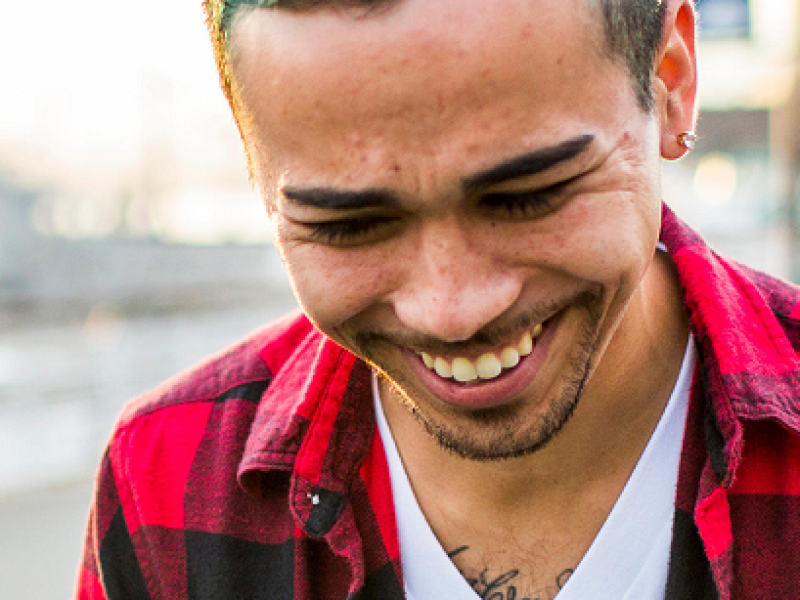The link between mental health and safe, secure housing was a prominent theme during Mind Australia’s second webinar in the ‘Respect in action’ series.
Mind’s Respect in action webinars are designed to foster conversations and provide an opportunity to learn more about the mental health needs of people from all backgrounds, ages and abilities.
The second webinar in this series - ‘Mental health, housing and homelessness: exploring inclusive pathways’ - took place on 30 August. The webinar explored housing and homeless experiences, and how these diverse needs can be better supported by the housing and mental health systems.
Speakers included:
- LJ, a lived experience representative
- Stacey Broadbent, National Manager Aboriginal Community Housing Limited
- and Ruth McNair, Honorary Associate Professor in the Department of General Practice at the University of Melbourne.
Inspiration and learning from lived experience
LJ shared her story of homelessness which started when she was 14.
LJ’s turbulent housing experience included couch surfing, living in a friend’s shed and numerous boarding and transitional houses.
These experiences exacerbated her mental ill-health which was already under strain due to traumatic events, toxic relationships and stigma.
“When I was in transitional housing the people around me were made aware of my situation so I was experiencing discrimination at my home and I was bombarded with hate and negativity. I felt like there was something wrong with me,” she said.
“It [homelessness] significantly impacted by mental health; I had low self-esteem, Post Traumatic Stress Disorder and you just feel like you are so behind in this race called ‘life’.”
LJ said she is happy to share her trauma if it leads to systemic change or can help others going through a similar experience.
“I’m happy to re-live those moments if I can take that negative experience and make it a positive for someone else – that’s what lived experience does. It’s nice to feel heard, it’s empowering and I feel blessed to be able to do it.”
The First Nation’s concept of ‘home’
Stacey Broadbent, National Manager at Aboriginal Community Housing and proud Tharawal woman, spoke about Aboriginal and Torres Strait Islander perspectives of housing, homelessness and mental health experiences.
She said the first thing that needed to be addressed was the idea of ‘home’.
“Our concept of home varies to other peoples, or the mainstream community, due to government policies, dispossession and lack of education, so we are often removed from what our cultural basis was. Home to us isn’t four walls - it’s actually where we come from,” Ms Broadbent said.
“In order to start having an honest discussion about First Nations people and homelessness, we have to look at what that means from a spiritual and cultural point of view.”
Ms Broadbent said transgenerational trauma needed to be considered in discussions about mental health.
“We have to start by looking at previous policies that have impacted First Nations people, and the stigma we face because it’s all connected.
“There is no solution at this point in time because the core of the problem is not being addressed.”
LGBTIQA+ homelessness and housing
Assoc. Prof. Ruth McNair, who is an academic GP specialising in LGBTIQA+ mental health and health issues, said the housing and homelessness sectors have a long way to go in order to address the complex issues confronting LGBTIQA+ people who experience homelessness.
“There are so many factors contributing to homelessness that require specific responses, correct and safe language and the use of pronouns. For example; an older lesbian woman, a trans or gender diverse person, or a gay man escaping a violent relationship will all have very different housing and support needs,” Assoc. Prof. McNair said.
“The homelessness sector is very gendered; what happens if you fall in the crack? Or you are a trans person who doesn’t feel comfortable in either male and female specific housing? There are also other people who don’t feel safe in any housing service because their identity wouldn’t be protected and they have heard previous stories of discrimination.”
Assoc. Prof. McNair said young LGBTIQA+ people experiencing homelessness often got trapped in a cycle because of the lack of appropriate housing and homelessness supports and the propensity to look to substance abuse and other issues as attempts to feel better.
